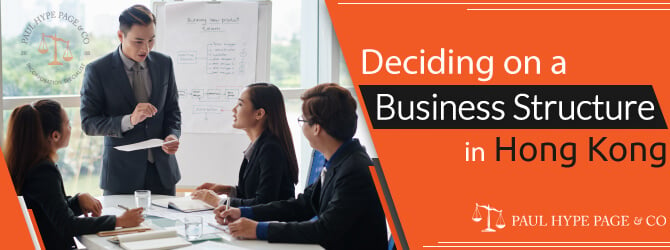Hong Kong’s business law is known for its clarity, efficiency, and alignment with international standards, making it a favorable environment for both local and international businesses. This article provides a brief introduction to the key aspects of Hong Kong’s business law.
Legal Framework
Trade Regulations
Hong Kong is open to trade and has an open door for policy trading. It thus implies that Hong Kong does not charge tariffs on the exporting or importing of goods. Besides, the importation and exportation licensing in Hong Kong are kept at a minimum rate.
Labour Laws
The labour legislation of Hong Kong is in-line with those of the international laws, and it has implemented several conventions from the International Labor Organization. The labour law has facilitated the entry of highly skilled financial professionals into the Hong Kong job market.
Corporate Taxation
Hong Kong’s corporate taxation system is probably the main reason that attracts many foreign investors conducting business in Hong Kong. It is low and there is zero tax on profits earned overseas for Hong Kong based businesses. The taxation system of Hong Kong is simpler and clearer to help both foreign and local investors operate with ease. Some of the reasons why the Hong Kong business taxation system is simpler is the fact that there are no capital gains tax, no VAT, no taxation on dividends, estate duty and inheritance are not subject to taxation. Furthermore, there are no payroll taxes and profits that are derived outside of Hong Kong. Nonetheless, the following are taxed: salaries, gains, property, and stamp duty.
Annual Compliance
Annual compliance refers to the yearly procedures required to maintain your financial records with the Hong Kong government. This includes submitting statutory returns, holding annual general meetings, recording associated minutes, and updating your personnel records with the Registrar of Companies.
Navigating the taxation regulations and maintaining annual compliance in Hong Kong requires experience and familiarity with the inner workings of the complex system. Fortunately, Paul Hype Page has an established presence working in Hong Kong as accountants, and we will assist your business in ensuring you fulfill the requirements of doing business in Hong Kong.
Stamp Duty
The Stamp Duty Ordinance (Cap. 117) imposes a duty on specific documents including:
- conveyance on sale,
- agreement on the sale of a property like a residential property,
- leasing of immovable property like tenancy agreement, and
- transfer of documents on Hong Kong stocks.
Stamp Duty can be difficult to understand if you are not a professional corporate secretary. Rather than spending years learning the regulation, you can instead have Paul Hype Page, a qualified advisor, handle the documentation and help you through the process.
Independent Commission against Corruption (ICAC)
As an international business hub, Hong Kong has strict rules against corruption. It is one of the countries places where one can opt to do business. The ICAC uses several means to fight corruption, including the passing of new laws and educating the public. Examples include new anti-money laundering (AML) processes and other restrictions. While the ICAC does a good job at preventing corruption, their efforts can make it difficult for legitimate companies to conduct business.
One way it is more difficult to conduct business in Hong Kong is in regard to bank account openings. It is harder for foreign companies to open bank accounts even if they are genuine.
Fortunately, Paul Hype Page has built professional relationships with banks in the region, and we are able to ensure a successful application. We are able to assist your business at any point from pre incorporation to post incorporation.
Business Structures
Before conducting business in Hong Kong, you will have to first incorporate your company through concerned Hong Kong government departments. There are various types of businesses that one can start in Hong Kong and they include:
- Public Limited Companies
Public limited companies can offer their shares to the general public on the stock exchange and it’s limited to shareholdings only in the case that the business runs in a loss. - Private Limited Companies
The company is not permitted to trade its shares on the stock exchange, but it is also limited which means that the shareholders cannot lose their personal properties but their shares in case that the company makes a loss. - Limited Partnerships
The business structure can be formed by two or more individuals who come together to form a business. One partner must have unlimited liability for the debts of the partners while the rest are limited to their initial capital invested in the company. - Sole Trader
Also known as a sole proprietor. The business structure is for a single investor who owns and operates the business by him/herself and they are expected to pay the profit tax on the business. The investor is responsible for all the losses and debts incurred by the business.
Conclusion
In short, the business laws and legal systems of Hong Kong are distinct from those of Mainland China and they are favorable to foreign investors who are willing to start and operate a business in Hong Kong. Besides, the cost and efficiency of doing a business are encouraging making Hong Kong one of the most preferred business destinations in Southeast Asia.
One way it is more difficult to conduct business in Hong Kong is about bank account openings. It is harder for foreign companies to open bank accounts even if they are genuine. Fortunately, Paul Hype Page has built professional relationships with banks in the region, and we can ensure a successful application. We can assist your business at any point from pre-incorporation to post-incorporation.
FAQs
The Hong Kong business laws require individuals to pay progressive tax rates starting from 2% up to 17% according to taxable income whereas the Hong Kong corporate tax rate is at 16.5%.
Yes, Hong Kong is one of the most liberal economic states globally. Besides its free trade policy, Hong Kong has no trade barriers, and it does not limit foreign onshore and offshore investments.
Yes, Hong Kong and Mainland China have different business regulations and their system of governance are independent of each other.
The Hong Kong business law requires that one has at least 6,000 HKD annually to help them in the license renewal and payment of registered address, including the company secretary expenses.
Are foreigners allowed to own a business in Hong Kong?





